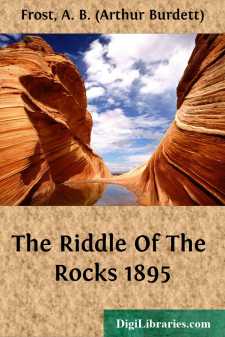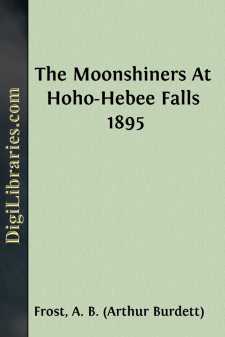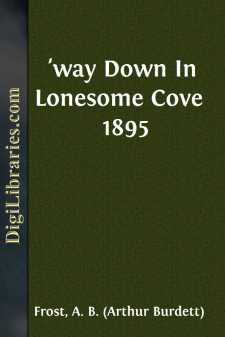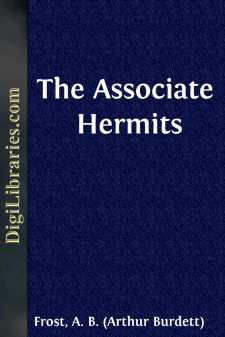Categories
- Antiques & Collectibles 13
- Architecture 36
- Art 48
- Bibles 22
- Biography & Autobiography 813
- Body, Mind & Spirit 142
- Business & Economics 28
- Children's Books 15
- Children's Fiction 12
- Computers 4
- Cooking 94
- Crafts & Hobbies 4
- Drama 346
- Education 46
- Family & Relationships 57
- Fiction 11828
- Games 19
- Gardening 17
- Health & Fitness 34
- History 1377
- House & Home 1
- Humor 147
- Juvenile Fiction 1873
- Juvenile Nonfiction 202
- Language Arts & Disciplines 88
- Law 16
- Literary Collections 686
- Literary Criticism 179
- Mathematics 13
- Medical 41
- Music 40
- Nature 179
- Non-Classifiable 1768
- Performing Arts 7
- Periodicals 1453
- Philosophy 64
- Photography 2
- Poetry 896
- Political Science 203
- Psychology 42
- Reference 154
- Religion 513
- Science 126
- Self-Help 84
- Social Science 81
- Sports & Recreation 34
- Study Aids 3
- Technology & Engineering 59
- Transportation 23
- Travel 463
- True Crime 29
The Riddle Of The Rocks 1895
Description:
Excerpt
Upon the steep slope of a certain "bald" among the Great Smoky Mountains there lie, just at the verge of the strange stunted woods from which the treeless dome emerges to touch the clouds, two great tilted blocks of sandstone. They are of marked regularity of shape, as square as if hewn with a chisel. Both are splintered and fissured; one is broken in twain. No other rock is near. The earth in which they are embedded is the rich black soil not unfrequently found upon the summits. Nevertheless no great significance might seem to attach to their isolation—an outcropping of ledges, perhaps; a fracture of the freeze; a trace of ancient denudation by the waters of the spring in the gap, flowing now down the trough of the gorge in a silvery braid of currents, and with a murmur that is earnest of a song.
It may have been some distortion of the story heard only from the lips of the circuit rider, some fantasy of tradition invested with the urgency of fact, but Roger Purdee could not remember the time when he did not believe that these were the stone tables of the Law that Moses flung down from the mountain-top in his wrath. In the dense ignorance of the mountaineer, and his secluded life, he knew of no foreign countries, no land holier than the land of his home. There was no incongruity to his mind that it should have been in the solemn silence and austere solitude of the "bald," in the magnificent ascendency of the Great Smoky, that the law-giver had met the Lord and spoken with Him. Often as he lay at length on the strange barren place, veiled with the clouds that frequented it, a sudden sunburst in their midst would suggest anew what supernal splendors had once been here vouchsafed to the faltering eye of man. The illusion had come to be very dear to him; in this insistent localization of his faith it was all very near. And so he would go down to the slope below, among the weird, stunted trees, and look once more upon the broken tables, and ponder upon the strange signs written by time thereon. The insistent fall of the rain, the incisive blasts of the wind, coming again and again, though the centuries went, were registered here in mystic runes. The surface had weathered to a whitish-gray, but still in tiny depressions its pristine dark color showed in rugose characters. A splintered fissure held delicate fucoid impressions in fine script full of meaning. A series of worm-holes traced erratic hieroglyphics across a scaling corner; all the varied texts were illuminated by quartzose particles glittering in the sun, and here and there fine green grains of glauconite. He knew no names like these, and naught of meteorological potency. He had studied no other rock. His casual notice had been arrested nowhere by similar signs. Under the influence of his ignorant superstition, his cherished illusion, the lonely wilderness, what wonder that, as he pondered upon the rocks, strange mysteries seemed revealed to him? He found significance in these cabalistic scriptures—nay, he read inspired words! With the ramrod of his gun he sought to follow the fine tracings of the letters writ by the finger of the Lord on the stone tables that Moses flung down from the mountain-top in his wrath.
With a devout thankfulness Purdee realized that he owned the land where they lay. It was worth, perhaps, a few cents an acre; it was utterly untillable, almost inaccessible, and his gratulation owed its fervor only to its spiritual values. He was an idle and shiftless fellow, and had known no glow of acquisition, no other pride of possession. He herded cattle much of the time in the summer, and he hunted in the winter—wolves chiefly, their hair being long and finer at this season, and the smaller furry gentry; for he dealt in peltry. And so, despite the vastness of the mountain wilds, he often came and knelt beside the rocks with his rifle in his hand, and sought anew to decipher the mystic legends....







